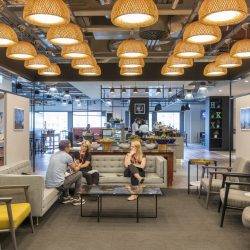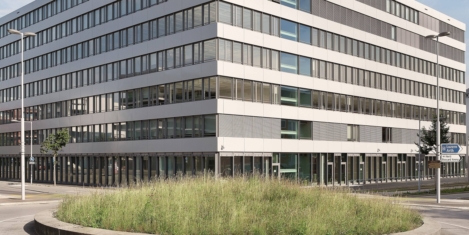To provide the best experiences, we use technologies like cookies to store and/or access device information. Consenting to these technologies will allow us to process data such as browsing behaviour or unique IDs on this site. Not consenting or withdrawing consent, may adversely affect certain features and functions.
The technical storage or access is strictly necessary for the legitimate purpose of enabling the use of a specific service explicitly requested by the subscriber or user, or for the sole purpose of carrying out the transmission of a communication over an electronic communications network.
The technical storage or access is necessary for the legitimate purpose of storing preferences that are not requested by the subscriber or user.
The technical storage or access that is used exclusively for statistical purposes.
The technical storage or access that is used exclusively for anonymous statistical purposes. Without a subpoena, voluntary compliance on the part of your Internet Service Provider, or additional records from a third party, information stored or retrieved for this purpose alone cannot usually be used to identify you.
The technical storage or access is required to create user profiles to send advertising, or to track the user on a website or across several websites for similar marketing purposes.
 Technology is in the process of transforming almost every aspect of society, with change happening at an “accelerating rate,” and this is being made possible due of simultaneous rapid advances in several key areas of technology. This is according to a new White Paper on ‘Megatrends: Smart Building Technology’ from BSRIA (registration required) that predicts this will have a huge impact on construction and building services; from the way buildings are constructed to how they are managed and interact with occupants. More →
Technology is in the process of transforming almost every aspect of society, with change happening at an “accelerating rate,” and this is being made possible due of simultaneous rapid advances in several key areas of technology. This is according to a new White Paper on ‘Megatrends: Smart Building Technology’ from BSRIA (registration required) that predicts this will have a huge impact on construction and building services; from the way buildings are constructed to how they are managed and interact with occupants. More →






 Almost half (49 percent) of UK employees admit they speak to colleagues about health concerns before sharing it with a partner or loved one, claims new research by Bupa Health Clinics. Stress, sleep, anxiety and weight problems are among the main concerns being discussed by employees at work, before confiding in those closest to home. The new report found that 46 percent of employees prefer to talk about health with a colleague over a loved one. Many do so with good intentions with more than a third finding it easier to talk to a colleague as they are less likely to worry.
Almost half (49 percent) of UK employees admit they speak to colleagues about health concerns before sharing it with a partner or loved one, claims new research by Bupa Health Clinics. Stress, sleep, anxiety and weight problems are among the main concerns being discussed by employees at work, before confiding in those closest to home. The new report found that 46 percent of employees prefer to talk about health with a colleague over a loved one. Many do so with good intentions with more than a third finding it easier to talk to a colleague as they are less likely to worry.










 All the chatter around the growth of flexible working might suggest it has now become the norm, but an academic paper refutes that view by revealing a third of all UK workers believe those who work flexibly create more work for others. A similar proportion believe their career will suffer if they use flexible working arrangements. This is the main finding from Dr Heejung Chung from the University of Kent who set out to analyse data from the 2011 Work-Life Balance Survey conducted by the government. Specifically, she wanted to examine whether stigma against flexible workers exists, who is most likely to hold such beliefs and who is most likely to suffer from it. The research also found that the majority of respondents that held negative views against flexible workers were male, while women and especially mothers were the ones who were most likely to suffer from such stereotypes.
All the chatter around the growth of flexible working might suggest it has now become the norm, but an academic paper refutes that view by revealing a third of all UK workers believe those who work flexibly create more work for others. A similar proportion believe their career will suffer if they use flexible working arrangements. This is the main finding from Dr Heejung Chung from the University of Kent who set out to analyse data from the 2011 Work-Life Balance Survey conducted by the government. Specifically, she wanted to examine whether stigma against flexible workers exists, who is most likely to hold such beliefs and who is most likely to suffer from it. The research also found that the majority of respondents that held negative views against flexible workers were male, while women and especially mothers were the ones who were most likely to suffer from such stereotypes.


 Over a third (35 percent) of UK workers continue to work when then get home from the office, claims research from
Over a third (35 percent) of UK workers continue to work when then get home from the office, claims research from 











December 7, 2018
Seven reasons why this will not be the office of the future
by Mark Eltringham • Comment, Facilities management, Furniture, Workplace design
More →